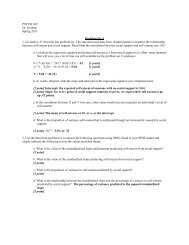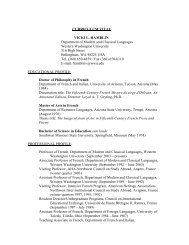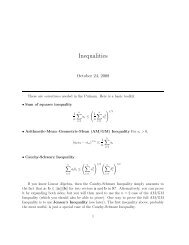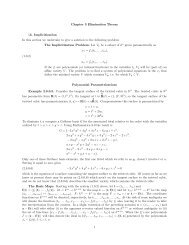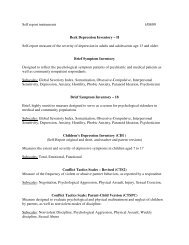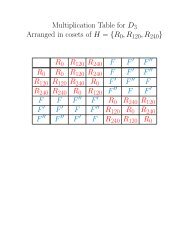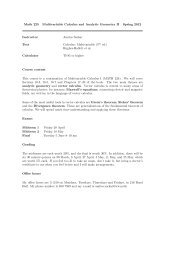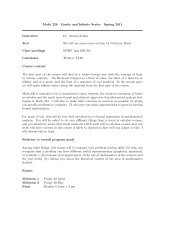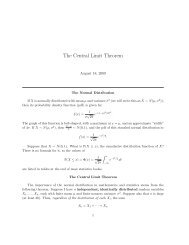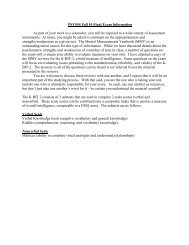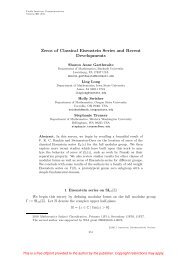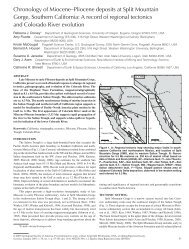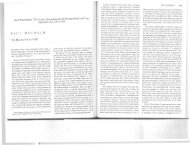Can There Be A Knowledge-First Ethics of Belief? - Western ...
Can There Be A Knowledge-First Ethics of Belief? - Western ...
Can There Be A Knowledge-First Ethics of Belief? - Western ...
Create successful ePaper yourself
Turn your PDF publications into a flip-book with our unique Google optimized e-Paper software.
elieve it for bad reasons. To fill in the details <strong>of</strong> the case, suppose that you<br />
have more or less all the same evidence most <strong>of</strong> us have about Obama, plus<br />
a small smattering <strong>of</strong> evidence from conspiracy-theoretic films about the<br />
matter. The large preponderance <strong>of</strong> your evidence indicates that Obama<br />
really is president, <strong>of</strong> course. But due to your hatred <strong>of</strong> Obama, you tend<br />
to pay much more attention to evidence gleaned from conspiracy theory<br />
literature, than to the rest <strong>of</strong> your evidence. You are on the fence between<br />
believing that Obama is not president (because he is a Kenyan - as many<br />
conspiracy theories say) and believing that he is president (because he is<br />
the son <strong>of</strong> two American communists - as is maintained by a flashy new<br />
documentary film you just watched). 7<br />
In such a case, the following counterfactual is false: if you were to believe<br />
that Obama is president, and the nonmental conditions for knowing were<br />
propitious, you would know that Obama is president. If you were to believe<br />
that Obama is president, and the nonmental conditions were propitious,<br />
you would not know that Obama is president. Instead <strong>of</strong> knowing as much,<br />
you would believe as much for a bad reason (namely, that Obama had as<br />
parents two American communists). As a result, the re-revised narrow scope<br />
counterfactual theory entails that you should not believe that Obama is<br />
president.<br />
But in fact, you should believe that Obama is president. After all, you<br />
possess more or less all the same evidence as do the rest <strong>of</strong> us with respect<br />
to the issue <strong>of</strong> whether Obama is president, aside from a bit <strong>of</strong> conspiracy<br />
literature to which you are irrationally attached. The re-revised narrow<br />
scope counterfactual theory is therefore mistaken.<br />
Is there another more charitable way to reinterpret the narrow scope counterfactual<br />
theory? No - at least, not as far as I can tell. But there is still<br />
one more way to try to save the counterfactual approach: we might try to<br />
get around the problems by widening the scope <strong>of</strong> the “should”. This gives<br />
us<br />
Wide Scope Counterfactual Theory<br />
You should (believe p iff (if you were to believe p, you would<br />
know p)) 8 11




